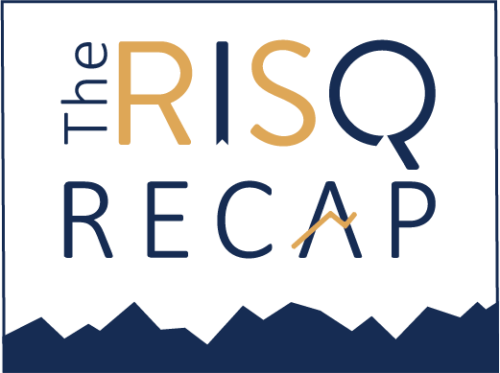
Each week, you’ll find specially curated news articles to keep you up to date on the ever-evolving world of insurance and risk management. The articles are divided out between items relevant to Property & Casualty, Employee Benefits/Human Resources, and Compliance. We’ve included brief summaries of each item as well as a link to the original articles.

PROPERTY & CASUALTY
Google Case at Supreme Court Risks Upending the Internet as We Know It
“An upcoming Supreme Court case could answer one of the toughest questions of the internet age: Should online companies be held responsible for promoting harmful speech? The case, Gonzalez v. Google, could upend the modern internet economy, sparing no online business. A ruling against Google will likely leave internet companies — from social media platforms to travel websites to online marketplaces — scrambling to reconfigure their businesses to avoid costly lawsuits.” Full Article
– Insurance Journal

EMPLOYEE BENEFITS, HUMAN RESOURCES, & COMPLIANCE
Texas District Court Once Again Vacates Departments’ No Surprises Act Regs “Health providers asserted that the regulations improperly limited arbitrators’ discretion and improperly weighted the QPA (by making it the ‘de facto benchmark’ for OON reimbursement). The district court concluded that the final regulations’ challenged provisions exceeded the Departments’ authority and conflicted with the NSA.” Full Article – Thomson Reuters Practical Law
Healthcare Plans After Dobbs: What Employers Need to Know “In an age of remote work, even employers based in states such as California where the right to – Boutwell Fay LLP
abortion healthcare has been confirmed, may have employees working remotely in other states which have restrictive abortion laws. Set up a system to monitor legal developments in this area, at the
state, local, and federal levels. Review all relevant plan documents. Consider new plans/plan designs. Review applicable leave laws.” Full Article
Agencies Propose Expansion of Contraceptive Care Coverage “The proposal would create a mechanism, independent from the employer, group health plan, plan sponsor, institution of higher education, or issuer, through which individuals could obtain contraceptive services at no cost from a willing provider of contraceptive services when the employer does not elect the optional accommodation.” Full Article – The Wagner Law Group
Public Health Emergency Ends May 11: What Telehealth Companies Need to Know “While some telehealth waivers will survive the end of the public health emergency (PHE), not every pandemic-era policy will continue. Digital health companies relying on the PHE waivers – Foley and Lardner LLP
should take steps now to bring operations into compliance with the post-PHE world before the PHE ends in May.” Full Article
HHS Fact Sheet: COVID-19 Public Health Emergency Transition Road Map “HHS continues to review the flexibilities and policies implemented during the COVID-19 PHE to determine whether others can and should remain in place, even for a temporary duration, to facilitate jurisdictions’ ability to provide care and resources to Americans. Still, others will expire. This Fact Sheet includes a list of some of the changes people will see in the months ahead.” Full Article – U.S. Department of Health and Human Services
Employers Prepare for Thawing ERISA Deadlines “Although the end of the outbreak period will be the same for each participant and beneficiary, not every deadline will be due to the mass nature of the timeframe beginning dates (the end of the outbreak period), employers, their third-party administrators, COBRA administrators, and other service providers may end up dealing with several ‘batched’ requests from participants, especially for some of the shorter deadlines and more common requests such as HIPAA special enrollment applications and COBRA elections.” Full Article – Ogletree Deakins

STATE & INTERNATIONAL COMPLIANCE
In addition to the RISQ Review, RISQ Consulting also provides a resource that features changes and updates to State and International Compliance measures. We’ve included brief summaries of each item below, and also provided links to the original articles if you’d like to read further.
Gainesville First City in Florida to Pass Fair Chance Hiring Law Restricting Private Employers’ Use of Criminal History “In light of these changes, covered employers with operations in Gainesville that use criminal records to vet candidates should consider a privileged review of their policies, procedures, and other documents related to the screening process.” Full Article – Littler Mendelson P.C.FLORIDA
St. Paul & Bloomington, Minnesota Amend Their Sick and Safe Time Ordinances “On January 19, 2023, St. Paul, Minnesota Mayor Melvin Carter signed into law amendments to the Earned Sick and Safe Time (ESST) Ordinance, which will take effect 30 days later, on February 18, 2023. Four days later, on January 23, Bloomington enacted amendments to its forthcoming ESST Ordinance that will, like the law itself, first take effect on July 1, 2023.” Full Article – Littler Mendelson P.C.MINNESOTA
2022 Connecticut Employment Law Recap “The past year has been filled with employment law developments in Connecticut. Below are summaries of some of the key laws that were passed or went into effect in 2022, with which Connecticut employers should be sure to comply in 2023.” Full Article – Day Pitney LLPCONNECTICUT
Illinois Legislature Passes Mandatory Paid Leave for Any Purpose, to be Effective in 2024 “The new law would require nearly all Illinois employers to provide employees with up to 40 hours of paid leave per year. Assuming it is signed, this requirement will be effective in January 2024, and the paid leave will be able to be used for any purpose.” Full Article – Levenfeld Pearlstein P.C.ILLINOIS
Not so FAST– AB 257 on Hold Pending Voter Referendum in 2024 “On January 24, 2023, the California Secretary of State completed its verification process and qualified a referendum challenging Assembly Bill (AB) 257, also known as the FAST Recovery Act for the November 2024 ballot. In the meantime, the law will not take effect unless it is approved by voters in the November 2024 election.” Full Article – Jackson Lewis P.C.CALIFORNIA





 Subscribe to the RISQ Recap, a weekly post to help you stay up to date on news articles and resources for your organization’s compliance needs.
Subscribe to the RISQ Recap, a weekly post to help you stay up to date on news articles and resources for your organization’s compliance needs.